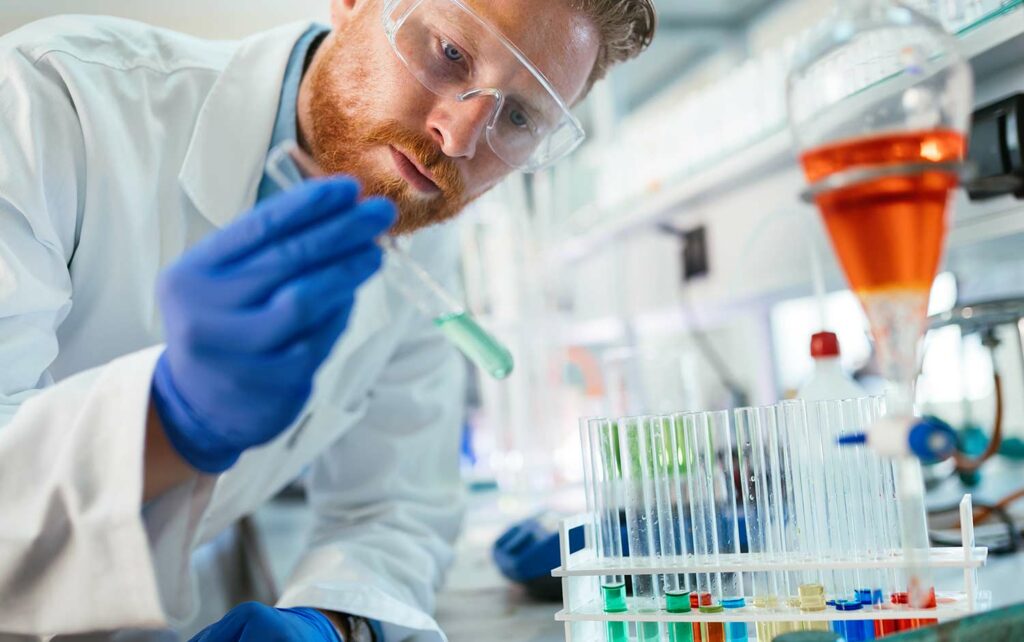Chemicals concentrate has revolutionized numerous industries and everyday life, offering remarkable benefits and solutions to various challenges. From cleaning products to agriculture, chemicals concentrate plays a pivotal role in enhancing efficiency, effectiveness, and convenience. This article explores the diverse applications and the incredible impact of chemicals concentrate in our modern world.
Table of Contents
- Introduction
- Understanding Chemicals Concentrate
- The Advantages of Chemicals Concentrate
- Chemicals Concentrate in Cleaning Products
- Chemicals Concentrate in Agriculture
- Chemicals Concentrate in Manufacturing
- Chemicals Concentrate in Healthcare
- Environmental Considerations
- Safety and Handling of Chemicals Concentrate
- The Future of Chemicals Concentrate
- Conclusion
- FAQs
Introduction
Chemicals concentrate refers to highly potent and condensed forms of substances used in various applications across industries. These concentrated chemicals offer numerous advantages, such as cost-effectiveness, improved performance, reduced storage space requirements, and enhanced sustainability.
Understanding Chemicals Concentrate

Chemicals concentrate involves reducing the volume of a substance while maintaining its active properties. This process typically involves distillation, evaporation, or other techniques to remove excess solvents or diluents, resulting in a concentrated and potent form of the chemical.
The Advantages of Chemicals Concentrate
Chemicals concentrate offers several key advantages over traditional formulations. Firstly, it allows for significant cost savings as smaller quantities are needed for the same desired effect. This reduces transportation costs and storage space requirements, contributing to overall efficiency. Secondly, concentrated chemicals are often more potent, ensuring optimal performance and achieving desired outcomes effectively. Furthermore, the reduced packaging and waste associated with chemicals concentrate promote sustainability and environmental responsibility.
Chemicals Concentrate in Cleaning Products
Chemicals concentrate has revolutionized the cleaning industry, enabling the production of highly effective and efficient cleaning products. Concentrated detergents, disinfectants, and cleaning solutions require smaller volumes to achieve the desired results, minimizing the use of water and reducing packaging waste. Additionally, chemicals concentrate allows for easier storage and transportation, making it a preferred choice for both commercial and domestic use.
Chemicals Concentrate in Agriculture
Chemicals concentrate plays a crucial role in revolutionizing the agricultural sector, providing farmers with efficient and effective solutions to enhance crop productivity while minimizing environmental impact. With the use of concentrated fertilizers, pesticides, and herbicides, agriculture has experienced significant advancements in precision and targeted application methods, leading to improved yield and sustainable practices.
One of the key benefits of chemicals concentrate in agriculture is its ability to optimize the use of fertilizers. Concentrated fertilizers contain a higher concentration of essential nutrients, allowing farmers to provide crops with precisely what they need for optimal growth and development. By using concentrated fertilizers, farmers can reduce the amount of fertilizer applied per acre while ensuring that plants receive the necessary nutrients. This targeted approach not only maximizes crop yield but also minimizes nutrient runoff and potential environmental pollution.
Chemicals concentrate also offers advantages in pesticide and herbicide application. Concentrated pesticides are formulated to be highly effective against pests and diseases, requiring smaller quantities for application. This targeted approach helps minimize the impact on non-target organisms and reduces the amount of pesticide residue in the environment. Additionally, concentrated herbicides enable precise weed control, reducing the need for excessive application and minimizing soil and water contamination.
Furthermore, the use of chemicals concentrate in agriculture contributes to sustainable practices. Concentrated formulations require smaller packaging and reduce transportation costs, resulting in lower energy consumption and greenhouse gas emissions. The reduced storage space needed for concentrated chemicals also allows farmers to optimize their storage facilities and reduce overall resource usage.
It is important to note that proper handling and application techniques should be followed when using chemicals concentrate in agriculture. Farmers should strictly adhere to recommended guidelines, including wearing appropriate protective gear, measuring and diluting the concentrate accurately, and applying it at the right time and under suitable weather conditions. By following these best practices, farmers can maximize the benefits of chemicals concentrate while ensuring safety and minimizing environmental risks.
Chemicals Concentrate in Manufacturing
Manufacturing industries greatly benefit from chemicals concentrate due to its ability to streamline production processes. By utilizing concentrated chemicals, manufacturers can optimize their formulations, reduce material waste, and enhance overall productivity. The use of concentrated additives, coatings, and solvents leads to improved quality control and cost-efficiency.
Chemicals Concentrate in Healthcare
The healthcare sector also relies on chemicals concentrate for a wide range of applications. From pharmaceutical formulations to medical equipment sterilization, concentrated chemicals provide precision, efficacy, and safety. By using concentrated disinfectants and sanitizers, healthcare facilities can maintain stringent hygiene standards while minimizing the environmental impact associated with waste disposal.
Environmental Considerations
While chemicals concentrate offers numerous benefits, it is essential to consider its environmental impact. Dilution of concentrated chemicals should always follow recommended guidelines to ensure safe and responsible usage. Additionally, proper disposal methods must be employed to prevent contamination of water sources and ecosystems.
Safety and Handling of Chemicals Concentrate

When working with chemicals concentrate, it is crucial to prioritize safety and follow established handling procedures. Protective equipment should be used, such as gloves and goggles, to minimize the risk of exposure. Understanding the specific properties and potential hazards of each concentrate is vital to mitigate any adverse effects.
The Future of Chemicals Concentrate
The future of chemicals concentrate holds immense potential for further advancements and innovation across various industries. Ongoing research and development efforts are focused on expanding its applications, enhancing sustainability, and maximizing its benefits.
One area where the future of chemicals concentrate looks promising is in the development of more potent and eco-friendly formulations. Scientists and engineers are continually exploring ways to increase the concentration and effectiveness of chemical concentrates while minimizing their environmental impact. This includes advancements in nanotechnology, which allow for the creation of highly concentrated and targeted formulations with reduced toxicity and waste.
Moreover, the future of chemicals concentrate involves incorporating sustainable practices throughout the entire lifecycle of production, usage, and disposal. This includes utilizing renewable resources as raw materials, adopting eco-friendly manufacturing processes, and ensuring responsible waste management strategies. By prioritizing sustainability, the future of chemicals concentrate aims to minimize the environmental footprint associated with its production and application.
Another exciting aspect of the future of chemicals concentrate lies in its integration with emerging technologies. As industries embrace digitalization and automation, chemicals concentrate can be combined with sensor technologies and data analytics to optimize application methods. This includes precision agriculture techniques, where concentrated fertilizers, pesticides, and herbicides are applied based on real-time data, such as soil conditions and crop requirements. Such advancements can lead to even more efficient and targeted use of chemicals concentrate, minimizing waste and maximizing effectiveness.
Conclusion
Chemicals concentrate has become a true miracle in our modern world. Its ability to condense and intensify the power of substances has transformed industries such as cleaning, agriculture, manufacturing, and healthcare. With cost-effectiveness, improved performance, and reduced environmental impact, chemicals concentrate offers an innovative solution for a sustainable and efficient future.
FAQs
1. Are chemicals concentrate safe to use?
Chemicals concentrate should be handled with care and in accordance with safety guidelines. When used responsibly, they offer safe and effective solutions.
2. Can chemicals concentrate be diluted?
Yes, chemicals concentrate can be diluted by following recommended guidelines to achieve the desired concentration for specific applications.
3. How do concentrated cleaning products benefit the environment?
Concentrated cleaning products reduce packaging waste, transportation emissions, and water usage, contributing to a more sustainable environment.
4. Is there a risk of contamination when working with chemicals concentrate?
Contamination risks can be minimized by employing proper handling procedures and following recommended guidelines for dilution and disposal.
5. What advancements can we expect in the future of chemicals concentrate?
Ongoing research and development are focused on creating even more potent and eco-friendly concentrate formulations, offering greater efficiency and sustainability.



